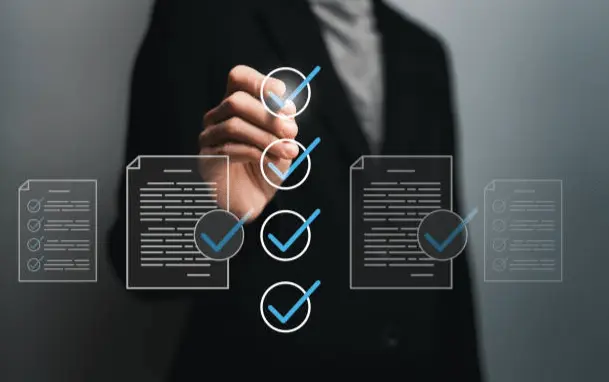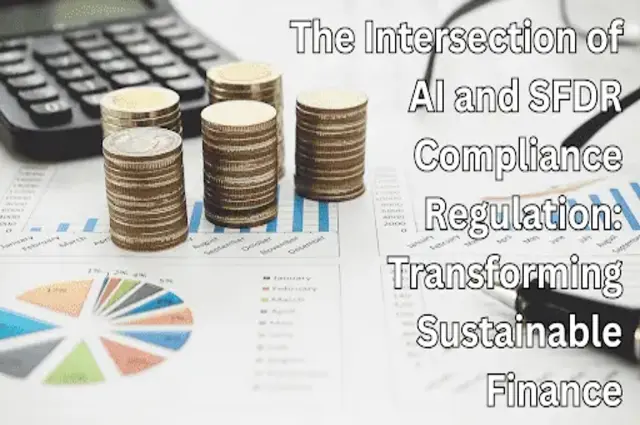Crime cases involving financial scams and shell corporations are on the rise, which may slow the development of new firms. The UNODC estimates 2-5% of worldwide GDP, or roughly $2 trillion, is laundered annually. However, this is happening due to the increasing number of identity theft and data breach activities. Due diligence and KYB verification services can cost firms roughly $50 million. Increasing the stringency of international rules like KYB and AML aims to simplify corporate operations and deter illegal ones.
This article explores the role that cutting-edge business verification solutions may play in assisting businesses in discouraging criminal activity.
Know Your Business Verification Solutions – A Quick Insight
Markets & Markets Research predicts the global identity verification market will reach $18.6 billion by 2027, growing 14.4% from 2022 to 2027.
The report identifies the following as essential market drivers:
- Growing use of digital tools
- Advanced technology infrastructure
Any company that deals with money laundering or sanctions data should use business verification solutions as part of their due diligence examination. The company can now more easily develop policies and spot unusual behavior. Businesses can protect themselves from being taken advantage of by “shell” companies using “Know Your Business (KYB)” services.
International regulators require banking companies to implement anti-money laundering and KYB solutions for overseas entities.
Procedure Behind KYB Business Verification Solutions
To verify the legitimacy of businesses, APIs can collect data from official commercial registers to use in KYB services. Efficient digital business verification services can collect valuable data for the corporate sector by using business registration numbers and jurisdiction codes.
Due diligence is easier than ever with data-driven company verification tools and automated commercial registers. As a result, it reduces the company’s time on manual verification and allows them to focus on other essential tasks.
- Executing a Business-Related Search
Background data on a corporation, such as but not limited to:
- Addresses on Document
- UBOs
- Previous Name
- Registration Trademark
- Current Status
A business’s financials must be summarized in the KYB verification process. This contributes to the process of determining whether or not a document may be relied upon.
- Using Business Filings
Instant and verified information about a company’s finances, such as :
- Obtainable financial records
- Files that can be downloaded (such as annual reports and lists of shareholders)
- Making Use of Business Statements
This can be useful for businesses in keeping tabs on the leadership and structure of competitors. Alterations to the board of directors or the owners’ beneficiaries might indicate the company’s growth and development. Because of this, it is essential to plan follow-up meetings to discuss any new company developments.
- Utilizing Business Networks
Comprehensive information on corporate hierarchies can shed light on the relationships between holding companies and their subsidiaries. The following conditions are crucial for concentrating on what matters:
- Where the company is officially incorporated
- Characteristics of business operations
- The worth of monetary exchanges
Understanding the Regulatory Approach to Business Verification Solutions
Businesses must update their compliance rules and simplify the onboarding process to attract only legitimate clients in accordance with international standards. Likewise, the AMLD6 regulation calls for in-depth checks of the identities of both new customers and corporate entities. Both identity theft and money laundering are deterred by this method.
The European Union (EU) aims to implement strict restrictions to deter money launderers from abusing businesses to conceal illicit funds. This highlights the importance of regulated enterprises following all rules and regulations. In addition to GDPR, PSD2, and PCI DSS, other requirements require companies to identify UBOs of relevant business partners.
The current EU legislation requires all governments to keep national registers of beneficial ownership data on potential enterprises and other legal entities. Given this context, it is imperative that all business owners register their company information to facilitate the identification of those engaged in illegal operations. Business partnership information becomes legally available to the public at a later date.
The Bottom Line
Organizations can benefit from business verification solutions since they increase the likelihood of working with legitimate partners. In this way, it benefits both parties to work toward common goals and establish reliable communication. In addition, organizations can easily maintain their standing in the marketplace.
Verifying a company’s legitimacy can greatly lessen the likelihood of fraud occurring within the organization. Businesses may work together more efficiently and on schedule with the PCI DSS-compliant solution.



 The Mythical World of “American Gods”: Why Neil Gaiman’s Tale Endures
The Mythical World of “American Gods”: Why Neil Gaiman’s Tale Endures  Developing Analytical Skills Through English Literature
Developing Analytical Skills Through English Literature  What to Consider When Choosing an Online Real Estate Course
What to Consider When Choosing an Online Real Estate Course  The Intersection of AI and SFDR Compliance Regulation: Transforming Sustainable Finance
The Intersection of AI and SFDR Compliance Regulation: Transforming Sustainable Finance  Mapping the Employee Journey: A Strategic View at the Employee Experience Framework
Mapping the Employee Journey: A Strategic View at the Employee Experience Framework  First Impressions: Stylish Front Door Ideas
First Impressions: Stylish Front Door Ideas